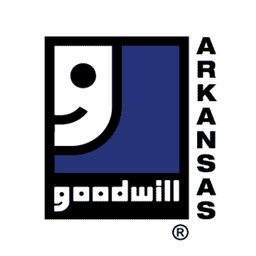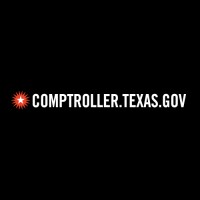GENERAL DESCRIPTION OF POSITION
This position's primary responsibility is to assist people with disadvantages, focused on justice-involved and veteran populations, in becoming self-sufficient by providing leading-edge services that create solutions and change lives. To fulfill this, the Reentry Program Specialist will assist participants in the reentry and Transition Employment Opportunity (TEO) Program, a 16-week, paid program for people with military service and felony backgrounds, in obtaining and maintaining soft skills and on the job experience. During the program, the Reentry Program Specialist will provide intensive case management, teach relevant curriculum, conduct one-on-one meetings, and be a support system to the participant with the end goal of finding gainful employment.
ESSENTIAL DUTIES AND RESPONSIBILITIES
1. Work as part of the interdisciplinary team and ensure that the necessary services and supports are provided via intensive case management to assist participants in identifying and making choices about their social, vocational and life skills goals to support successful community reintegration. This duty is performed daily, about 30% of the time.
2. Design and facilitate educational and training programs, both pre- and post-transition, as participants' needs dictate, to include life skills training, financial management, eligibility for local, state, and federal assistance, socialization, parenting skills, career development, occupational skill training and personal safety. This duty is performed weekly, about 30% of the time.
3. Facilitate the intake process for a new referral; complete a needs assessment and interest inventories to establish a basis for the Individual Service Plan; complete a financial analysis and develop a plan to assist each participant start a path to self-sufficiency. This duty is performed weekly, about 15% of the time.
4. Provide information and referral for services that are not provided by the agency, as appropriate; maintain professional and ethical boundaries with consumers and community stakeholders at all times. This duty is performed weekly, about 5% of the time.
5. Develop knowledge of and relationships with community service providers, e.g., collaborating agencies, probation, parole, court support services, Department of Human Services, Child Support Enforcement, substance abuse, mental health agencies, housing providers/landlords, legal aid, area schools, both secondary and post-secondary, faith-based groups. This duty is performed weekly, about 5% of the time.
6. Develop and maintain relationships with family members, residential providers, funders, and any other internal and external contacts to ensure pertinent resources are available to participants. This duty is performed weekly, about 5% of the time.
7. Adhere to client privacy rights and HIPAA requirements. Maintain compliance with funding and accreditation requirements (i.e., CARF). This duty is performed weekly, about 5% of the time.
8. Facilitate discharge planning and follow-up in transfers to other agencies and community programs. This duty is performed weekly, about 5% of the time.
9. Facilitate or coordinate staff in-service training and related support services, when needed; include successful program participants as presenters and mentors to share success stories. This duty is performed monthly, about 5% of the time.
10. Complete daily and weekly required case note documentation and other related progress reports as required. This duty is performed weekly, about 5% of the time.
11. Provide crisis intervention and assist in the development of responsible behaviors to ensure successful reintegration into the community; provide ongoing support, as needed, to ensure appropriate engagement in services outlined in the Individual Service Plan. This duty is performed as needed.
12. Perform any other related duties as required or assigned.
13. Perform any other related duties as required or assigned.
QUALIFICATIONS
To perform this job successfully, an individual must be able to perform each essential duty mentioned satisfactorily. The requirements listed below are representative of the knowledge, skill, and/or ability required.
EDUCATION AND EXPERIENCE
Knowledge of a specialized field (however acquired), such as basic accounting, computer, etc. Equivalent of four years in high school, plus night, trade extension, or correspondence school specialized training, equal to two years of college, plus 3 years related experience and/or training, or equivalent combination of education and experience.
COMMUNICATION SKILLS
Ability to write reports, business correspondence, and policy/procedure manuals; ability to effectively present information and respond to questions from groups of managers, clients, customers, and the general public.
REQUIRED CERTIFICATES, LICENSES, REGISTRATIONS
Valid Driver's License, MVR, and cleared background
PREFERRED CERTIFICATES, LICENSES, REGISTRATIONS
Bachelors Degree
SOFTWARE SKILLS REQUIRED
Intermediate: Alphanumeric Data Entry, Contact Management, Database, Payroll Systems, Presentation/PowerPoint, Spreadsheet, Word Processing/Typing
ADDITIONAL INFORMATION
Minimum of 3+ years experience in public service or social services. Bachelors degree preferred.
Willingness to learn and respect the needs of persons with mental illness or a disability.
Knowledge of the criminal justice system or experience working with ex-prisoners or addiction and recovery.
Knowledge of veteran support services or experience working with veterans.
Ability to access department of corrections facilities or military installations throughout the designated region as required.
Good organizational skills, time management skills, and the ability to prioritize.
Good written and oral communication skills. Ability to speak effectively before groups. Ability to work effectively with people of diverse educational and cultural backgrounds, from individuals who are justice-involved and veterans to public officials.
Knowledge of client privacy rights and HIPAA requirements. Must be able to accept and follow oral and written instructions and materials. Awareness of the need for confidentiality, professional ethics, and code of conduct.
Ability to travel throughout the designated region as required.



